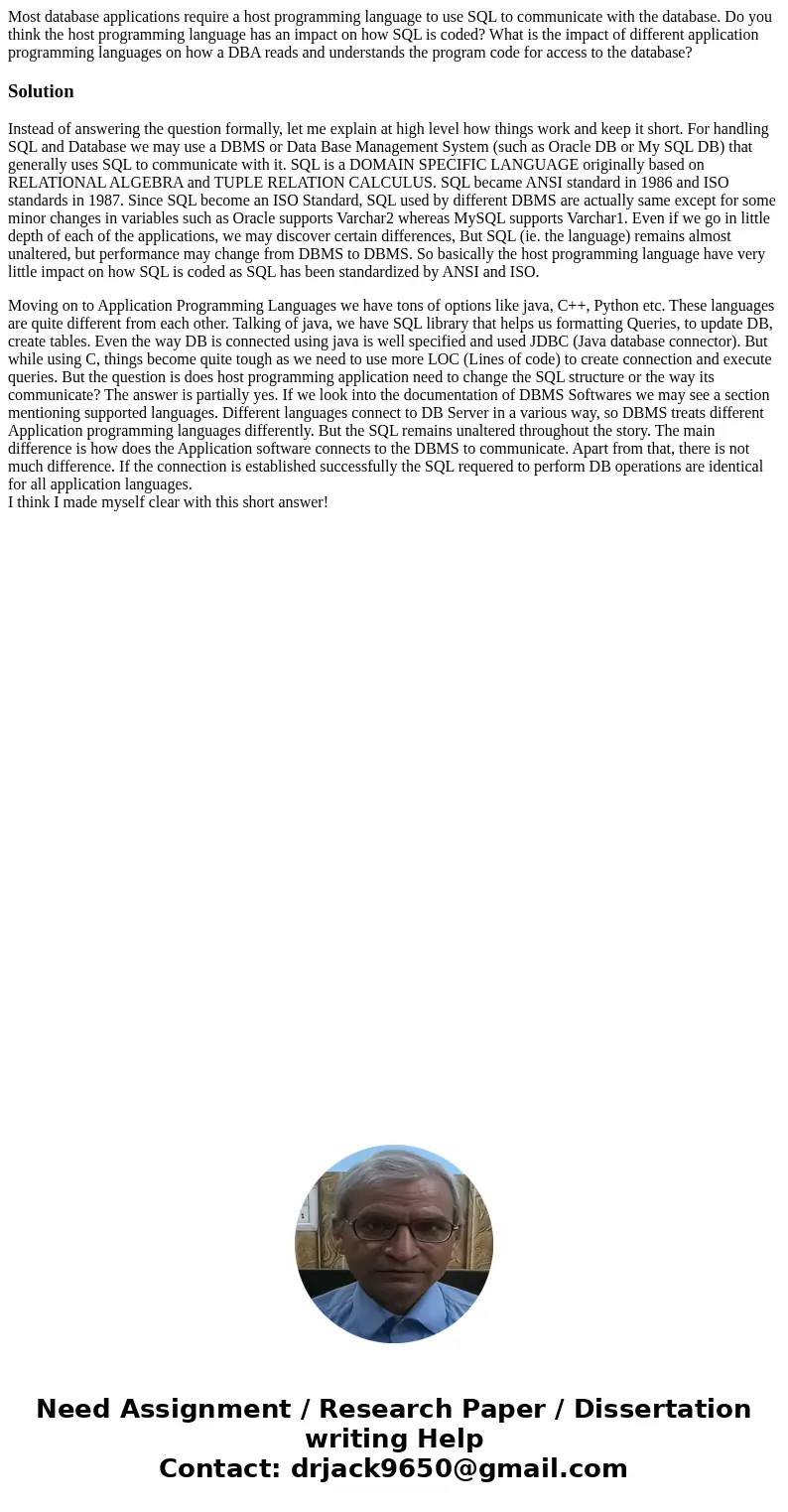Most database applications require a host programming langua
Most database applications require a host programming language to use SQL to communicate with the database. Do you think the host programming language has an impact on how SQL is coded? What is the impact of different application programming languages on how a DBA reads and understands the program code for access to the database?
Solution
Instead of answering the question formally, let me explain at high level how things work and keep it short. For handling SQL and Database we may use a DBMS or Data Base Management System (such as Oracle DB or My SQL DB) that generally uses SQL to communicate with it. SQL is a DOMAIN SPECIFIC LANGUAGE originally based on RELATIONAL ALGEBRA and TUPLE RELATION CALCULUS. SQL became ANSI standard in 1986 and ISO standards in 1987. Since SQL become an ISO Standard, SQL used by different DBMS are actually same except for some minor changes in variables such as Oracle supports Varchar2 whereas MySQL supports Varchar1. Even if we go in little depth of each of the applications, we may discover certain differences, But SQL (ie. the language) remains almost unaltered, but performance may change from DBMS to DBMS. So basically the host programming language have very little impact on how SQL is coded as SQL has been standardized by ANSI and ISO.
Moving on to Application Programming Languages we have tons of options like java, C++, Python etc. These languages are quite different from each other. Talking of java, we have SQL library that helps us formatting Queries, to update DB, create tables. Even the way DB is connected using java is well specified and used JDBC (Java database connector). But while using C, things become quite tough as we need to use more LOC (Lines of code) to create connection and execute queries. But the question is does host programming application need to change the SQL structure or the way its communicate? The answer is partially yes. If we look into the documentation of DBMS Softwares we may see a section mentioning supported languages. Different languages connect to DB Server in a various way, so DBMS treats different Application programming languages differently. But the SQL remains unaltered throughout the story. The main difference is how does the Application software connects to the DBMS to communicate. Apart from that, there is not much difference. If the connection is established successfully the SQL requered to perform DB operations are identical for all application languages.
I think I made myself clear with this short answer!

 Homework Sourse
Homework Sourse